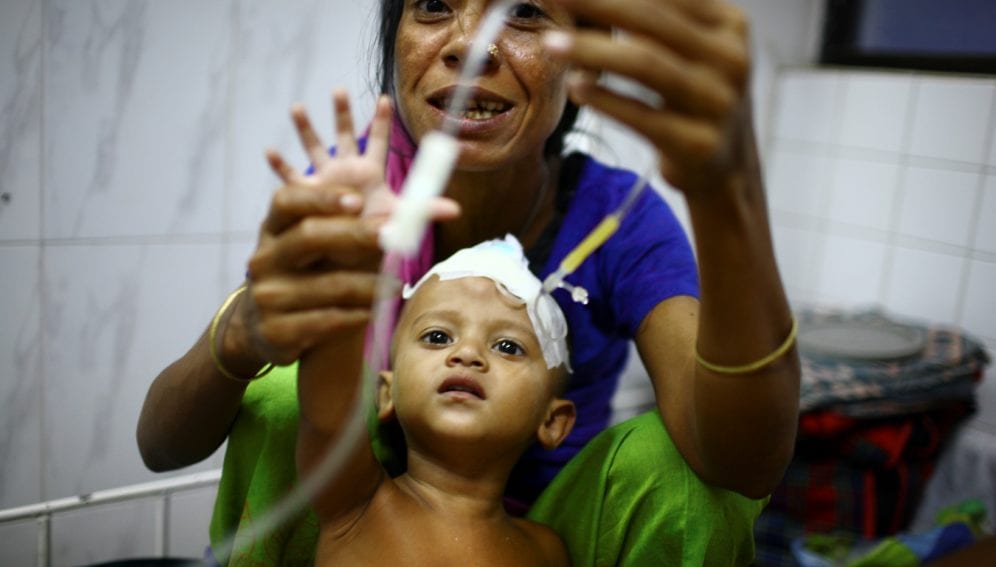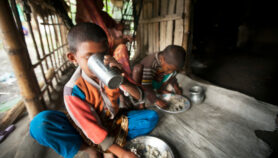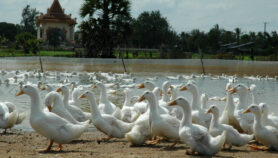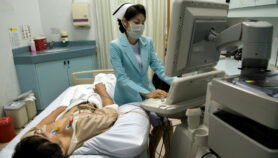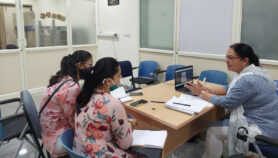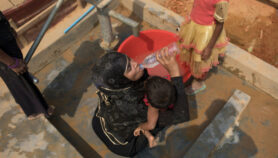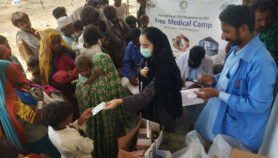By: Naimul Haq
Send to a friend
The details you provide on this page will not be used to send unsolicited email, and will not be sold to a 3rd party. See privacy policy.
[DHAKA] A single dose of oral cholera vaccine (OCV) is sufficient to protect older children and adults and also family and community members, a new study by Bangladeshi scientists indicates.
“A single dose gives protection directly to the person who is immunised and also indirectly protects family members and those in the community who are potentially at risk from the cholera germ (Vibrio cholerae),” says Firdausi Qadri, leader of the study and scientist at the International Centre for Diarrhoeal Disease Research, Bangladesh.
“Our studies show that a hospitalised victim, if not vaccinated, may pass on cholera germs to family members and neighbours,” Qadri tells SciDev.Net. The findings were published May in the New England Journal of Medicine.
According to her, the finding that a single dose of OCV is sufficient to protect populations where cholera is endemic would mean huge savings on public health budgets, especially in cholera endemic areas of the world.
“Globally, cholera is still a major problem in many areas where sanitation is poor. I believe that the single dose of the vaccine will hugely benefit those populations in areas where cholera is heavily endemic,” says Qadri.
An earlier study conducted in Bangladesh showed the cost of the standard two doses of vaccine per person, including delivery, to be US$ 3.93 while the cost of a single dose was US$ 0.76."The potential public health impact is significant," says Jerome Kim, director-general of the International Vaccine Institute, Seoul, which collaborated in the study. "A single dose OCV will help increase vaccine access during humanitarian crises and other settings with challenging conditions that makes vaccine delivery difficult."
The study, funded by the Bill and Melinda Gates Foundation, was carried out in the Mirpur area of Dhaka city which is considered high risk for cholera because of its slums with poor water supply and sanitation. The researchers randomised non-pregnant residents over the age of 1 year to a single dose of the oral killed cholera vaccine or placebo.
The vaccine was 40 per cent protective against all cholera episodes up to six months after dosing and 63 per cent protective against severely dehydrating cholera. Overall, 204,700 study participants received one dose of vaccine or placebo and among these 101 first cholera episodes were detected during the six months of follow-up.
However, the single dose vaccine did not provide protection for under-five children. “Children under five are more likely to be exposed to the deadly germs than adults and so they need extra protection from the two-regimen OCV doses,” Qadri explains.
Whether and how a single dose might be used in cholera endemic areas calls for further study, Qadri says. Also, the duration of protection conferred by a single dose of OCV given to older children and adults needs to be ascertained, she adds.


